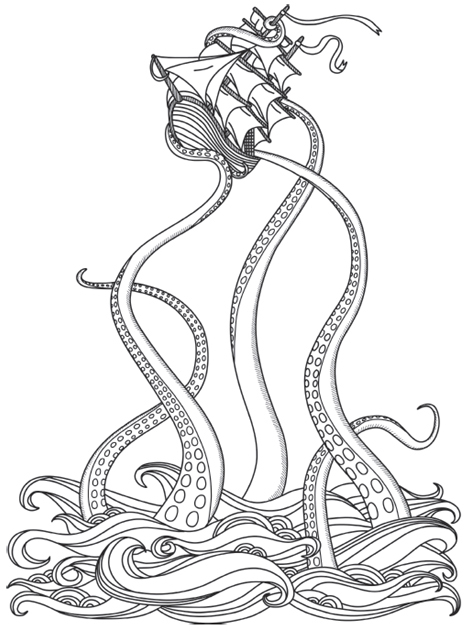
Part I Default Thinking and the Kraken of Doom
Default [noun]: an option that is selected automatically in the absence of viable alternatives.
Ahoy the default! It's always there, and it's such a time-saver. So handy. Thanks to the default, we get stuff done and we make things happen.
But sometimes — because it's always there — we stop seeing the default. We stop questioning the very thing that influences every decision we make. And, thus, we assume our assumptions are valid, sound, correct and appropriate for the current and emerging context we operate in.
Our default thinking (and the biases it harbours) becomes like air to a bird, or water to a fish. We are so unceasingly immersed in it that we don't even comprehend it to be there. And so the things that we do become the perpetual echoes of things we did before, and the reflection of the norms we're immersed in.
Change, progress and growth only truly happen when we challenge our thinking, and explore alternative options.
But, of course, the default is not all bad! It's actually really rather handy, most of the time. So before we proceed with our fancy future-focused, proactive, default-eschewing, strategic-progress-making magic, in chapter 1 we're going to pay a brief homage to default thinking and the wonderful things it brings. Things like systems, templates and other Established Ways of Doing Things. Such constructs ...
Get How To Lead A Quest now with the O’Reilly learning platform.
O’Reilly members experience books, live events, courses curated by job role, and more from O’Reilly and nearly 200 top publishers.

